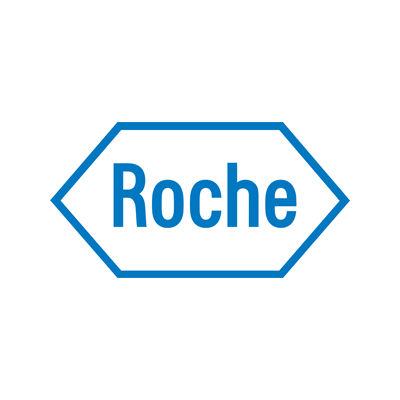预约演示
更新于:2025-05-07

KSQ Therapeutics, Inc.
更新于:2025-05-07
概览
标签
肿瘤
皮肤和肌肉骨骼疾病
免疫系统疾病
小分子化药
肿瘤浸润淋巴细胞
CRISPR/Cas9
疾病领域得分
一眼洞穿机构专注的疾病领域
暂无数据
技术平台
公司药物应用最多的技术
暂无数据
靶点
公司最常开发的靶点
暂无数据
| 排名前五的药物类型 | 数量 |
|---|---|
| 肿瘤浸润淋巴细胞 | 3 |
| 小分子化药 | 3 |
| CRISPR/Cas9 | 2 |
| 生物药 | 1 |
| CAR-T | 1 |
| 排名前五的靶点 | 数量 |
|---|---|
| SOCS1 x regnase-1 | 4 |
| USP1 | 1 |
| OX40(肿瘤坏死因子受体超家族成员4) | 1 |
关联
20
项与 KSQ Therapeutics, Inc. 相关的药物作用机制 SOCS1调节剂 [+1] |
非在研适应症- |
最高研发阶段临床1/2期 |
首次获批国家/地区- |
首次获批日期- |
作用机制 SOCS1调节剂 [+1] |
非在研适应症- |
最高研发阶段临床1期 |
首次获批国家/地区- |
首次获批日期- |
靶点 |
作用机制 USP1抑制剂 |
在研机构 |
非在研适应症- |
最高研发阶段临床1期 |
首次获批国家/地区- |
首次获批日期- |
2
项与 KSQ Therapeutics, Inc. 相关的临床试验NCT06598371
A Phase 1/2 Study of KSQ-004EX, Autologous Tumor Infiltrating Lymphocytes Engineered to Inactivate Genes Encoding SOCS1 and Regnase-1, in Patients With Select Advanced Solid Tumors
Phase 1 is to find the recommended dose of KSQ-004EX to give to participants with advanced solid tumors.
Phase 2 is to learn if KSQ-004EX at the recommended dose found in Phase1 can help to control advanced solid tumors.
The safety and effects of KSQ-004EX will also be studied in both phases.
Phase 2 is to learn if KSQ-004EX at the recommended dose found in Phase1 can help to control advanced solid tumors.
The safety and effects of KSQ-004EX will also be studied in both phases.
开始日期2024-11-21 |
申办/合作机构 |
NCT06237881
A Phase 1/2 Study of KSQ-001EX, Autologous Tumor Infiltrating Lymphocytes Engineered to Inactivate the SOCS1 Gene, in Patients With Select Advanced Solid Tumors
To learn if KSQ-001EX is safe to give to participants with advanced forms of solid tumors.
开始日期2024-01-31 |
100 项与 KSQ Therapeutics, Inc. 相关的临床结果
登录后查看更多信息
0 项与 KSQ Therapeutics, Inc. 相关的专利(医药)
登录后查看更多信息
6
项与 KSQ Therapeutics, Inc. 相关的文献(医药)2025-04-21·Cancer Research
Abstract 2196: Characterizing the impact of SOCS1 and Regnase-1 inactivation on tumor reactive T cells present in CRISPR/Cas9-engineered TIL (eTIL®) therapies derived from melanoma and NSCLC tumors through functional and single cell analyses
作者: Martinez, Gustavo J. ; Ghose, Mitali ; Benson, Micah J. ; Yoon, Charles H. ; Smashnov, Alex ; Sangurdekar, Dipen ; Monteiro, David ; Yeri, Ashish ; Turk, Mary Jo ; Wong, Karrie ; Travers, Meghan ; Searles, Tyler G. ; Lin, Sharon ; Dunbar, Paul ; Phillips, Joseph D. ; McKenney, Seamus
2023-04-04·Cancer Research
Abstract 1581: KSQ-4279, a first-in-class USP1 inhibitor shows strong combination activity with multiple PARP inhibitors in BRCA mutant cancers
作者: Murray, Morgan ; Shenker, Sol ; Wylie, Andrew ; Tobin, Erica ; Stegmeier, Frank ; Cadzow, Louise ; Sullivan, Pamela ; Gannon, Hugh ; Dodson, Anne
2023-04-04·Cancer Research
Abstract 2771: KSQ-4279 mediated USP1 inhibition induces replication associated DNA gaps that contribute to cell death
作者: Mishina, Yuji ; Gannon, Hugh ; Cadzow, Louise ; Schlabach, Michael ; Stegmeier, Frank ; Wylie, Andrew ; Nayak, Sumeet ; Sullivan, Pamela ; Kao, Pei-Lun ; Tobin, Erica ; Murray, Morgan ; Shenker, Sol ; Dodson, Anne ; Middleton, Chris
59
项与 KSQ Therapeutics, Inc. 相关的新闻(医药)2025-04-15
·今日头条
2025年4月9日,KSQ Therapeutics官网发布重磅消息:基于CRISPR前沿技术的肿瘤浸润淋巴细胞(TIL)疗法KSQ-004EX,正式开启晚期实体瘤治疗的新纪元!首位由德克萨斯大学MD安德森癌症中心招募的受试者顺利完成给药,标志着这项改写癌症治疗格局的1/2期临床试验已扬帆启航。
作为创新疗法的先锋,KSQ-004EX运用CRISPR/Cas9技术精准靶向,实现SOCS1与Regnase-1双基因失活,犹如为肿瘤浸润淋巴细胞(TIL)安装超强动力引擎。临床前数据亮眼证实:这一突破性双基因编辑策略,正推动抗癌效能呈指数级飞跃!
此次开放标签剂量递增研究聚焦六大癌种——黑色素瘤、非小细胞肺癌、头颈部鳞癌、结直肠癌、胰腺癌与宫颈癌。当希望穿透晚期阴霾,KSQ首席执行官满怀热忱宣告:"TIL疗法的未来充满无限可能!尽管挑战严峻,KSQ-004EX以基因增强之力锻造抗癌利剑,必将开辟实体瘤治疗新路径,为万千患者重燃生命曙光!"此刻,人类抗癌征程的冲锋号已然吹响,让我们共同见证这场改写命运的医学革命!
▲截图源自“KSQ”
一、过继细胞疗法的“三驾马车”:TIL、CAR-T、TCR-T的优势与突围之路,开启癌症免疫治疗新时代
回溯至1986年,一袋乳白色的肿瘤浸润淋巴细胞(TIL)制剂从实验室启程,抵达美国国立卫生研究院临床中心,完成了全球首例转移性癌症患者的人体输注。这一开创性尝试与后续数百次临床实践,共同推动TIL疗法逐渐走向成熟。
如今,TIL疗法已成为实体瘤治疗的标志性突破,以高应答率与长生存期为患者点亮新希望。其核心策略是从肿瘤组织提取免疫细胞,经体外扩增后回输体内,精准识别并清除癌细胞。通过捕捉癌症新抗原激活T细胞免疫反应,借由机体自身的"细胞毒性"实现肿瘤杀伤。
以TIL为代表的过继细胞疗法(涵盖TIL、CAR-T、TCR-T),正引领癌症治疗的前沿探索。这些创新技术利用免疫系统的潜力靶向并杀死肿瘤细胞,但各有优势与局限:
1、
CAR-T疗法
:在B细胞急性淋巴细胞白血病、非霍奇金淋巴瘤等血液系统恶性肿瘤中战绩卓越,多款产品获监管批准上市,但对实体瘤疗效尚待突破。
2、
TCR-T疗法
:凭借靶向细胞内抗原的特性,在实体瘤治疗中展现潜力;不过,特异性抗原靶点稀缺及HLA配型需求仍是当前挑战。
3、
TIL疗法
:直接从自体肿瘤组织提取免疫细胞,天然具备肿瘤识别能力,经扩增后实现个体化精准打击,显著降低移植物抗宿主病(GVHD)风险,尤其在黑色素瘤及多种实体瘤治疗中表现优异(详见下表)。
▲数据源自“Cancer Immunol Immunother”,全球肿瘤医生网医学部整理汇总
总之,这三种疗法彼此协同,共同构建起癌症免疫治疗的前沿阵地。尽管技术挑战依然存在,但它们为战胜癌症开辟了多元路径,承载着生命的新希望。
二、TIL细胞助前列腺癌患者,完全缓解超3.5年
纽约食管鳞状细胞癌抗原1(NY-ESO-1)是一种高免疫原性的癌睾抗原,可在多数表达该抗原的晚期肿瘤患者中,同时激活细胞与体液免疫,被视为癌症免疫治疗的潜力靶点。
《癌症免疫治疗》杂志报道了一则突破性案例:一位70多岁的男性患者,2004年确诊前列腺癌后,接受根治性切除术及盆腔淋巴结清扫,后续针对骨转移放疗,并持续抗激素治疗。然而遗憾的是,疾病依然进展,癌细胞侵及尿道、软组织及淋巴结,因该患者拒绝标准化疗,遂入组基于同情用药的实验性肿瘤浸润淋巴细胞(TIL)治疗,治疗方案为体外扩增的TIL细胞+白细胞介素-2(IL-2)+免疫检查点阻断疗法联合治疗。
结果显示:三次TIL输注后,前列腺特异抗原(PSA)水平持续下降,第3次输注2个月后,
PSA降至0.01µg/L,同时所有肿瘤表现为完全缓解(CR)
。治疗期间,
患者基线高水平的NY-ESO-1血清抗体滴度持续下降
(详见下图)。
▲图源“BMJ”,版权归原作者所有,如无意中侵犯了知识产权,请联系我们删除
MRI影像证实,
TIL第三次输注2个月后,肿瘤负荷显著减轻
。截至最新评估,
患者已维持CR状态超3.5年
(详见下图)。
▲图源“BMJ”,版权归原作者所有,如无意中侵犯了知识产权,请联系我们删除
· 全球肿瘤医生网温馨提示 ·
99%的肿瘤患者都不知道,自己手术切除的肿瘤组织中深藏着杀癌能力最强的一群免疫细胞,肿瘤浸润淋巴细胞(TIL)。
然而,令人遗憾的是,以往许多患者在手术切除肿瘤组织后,通常仅会提取一小部分用于制作病理蜡块以进行病理诊断,而其余大部分肿瘤组织则会被当作医疗垃圾丢弃,这无疑致使患者体内潜藏的抗癌能力极强的肿瘤浸润淋巴细胞(TIL)被白白浪费。
此外,值得关注的是,TILs 细胞数量会随着肿瘤的进展而逐渐减少,并且在术后接受辅助性治疗(如放疗、化疗)时,不仅癌细胞会受到杀伤,体内的免疫细胞也可能受到影响。
三、TIL疗法精准锁定KRAS突变!晚期结直肠癌患者实现持续缓解
全球知名期刊《新英格兰医学杂志》报道了一则突破性案例:一名转移性结直肠癌女性患者(50岁,编号4095)经肿瘤浸润淋巴细胞(TIL)治疗后,7个肺部转移病灶全部消退,实现持续9个月的部分缓解。
该患者入组2期临床试验(NCT01174121),研究旨在验证体外扩增的TIL(含靶向个体化癌症新表位的T细胞)对转移性实体癌的疗效。研究人员在该患者肿瘤浸润淋巴细胞中,发现针对KRASG12D突变的多克隆CD8+T细胞应答,遂筛选由4种特异性识别该突变的T细胞克隆组成的HLA-C*08:02限制性TIL进行扩增。治疗前,患者接受环磷酰胺+氟达拉滨的非清髓性淋巴细胞清除化疗,随后输注靶向KRASG12D的TIL细胞,并接受白细胞介素-2(IL-2)治疗。
结果显示:在TIL细胞治疗后40天进行的首次随访中,该患者
所有7个肺转移灶均已完全消退
;依据实体瘤疗效标准,患者
维持9个月的部分缓解(PR)
,直至单个病灶(病灶3)进展。病灶切除后,
患者持续4个月保持临床无病状态
。
▼该患者在输注TIL细胞前、输注6周、9个月后,胸部的增强计算机断层扫描
▲图源“N Engl J Med”,版权归原作者所有,如无意中侵犯了知识产权,请联系我们删除
注:其中至少75%的细胞对突变型KRAS G12D具有特异性。箭头突出显示治疗前后的肺部病变。图中显示了七个病变中的四个;其余三个病变(未显示)在9个月时完全消退。
四、TIL细胞+低剂量IL2依然抗打:晚期黑色素瘤客观缓解率高达42%,CR持续达32个月
《临床癌症研究》发表了一项“自体肿瘤浸润淋巴细胞(TIL)联合低剂量IL2,治疗进展期难治性转移性黑色素瘤的I/II期临床试验(NCT00937625)”,数据令人振奋!该研究共纳入25例年龄在25~68岁之间的进展期难治性转移性黑色素瘤患者,均伴有至少一处可切除转移灶。入组后,先接受标准淋巴细胞清除化疗,随后输注TIL细胞,并序贯静脉注射递减剂量的IL2,中位随访时间为28.1个月。
结果显示:所有25例入组患者的
中位无进展生存期(PFS)3.9个月,中位总生存期(OS)21.8个月
;
1年、3年生存率分别达72%和40.8%
(详见下图)。
▲图源“AACR”,版权归原作者所有,如无意中侵犯了知识产权,请联系我们删除
按RECIST1.0标准,24例可评估患者中
10例(42%)获客观缓解(ORR)
,包括
3例完全缓解(CR)、7例部分缓解(PR)
;
11例病情稳定超4-6个月
。
CR及4例PR持续6-45个月
,
多数患者抗肿瘤免疫反应维持达2年
。出现典型IL-2相关毒性,但在普通病房即可控制,无需重症监护。
▲图源“AACR”,版权归原作者所有,如无意中侵犯了知识产权,请联系我们删除
值得一提的是,患者M26在治疗2个月后即达到
部分缓解(PR)
,因疤痕组织吸收缓慢,FDG-PET/CT仍见残余病灶;
13个月后确认完全缓解(CR),完全缓解(CR)持续长达32个月(≈2.6年)
(详见下图)。
▲图源“AACR”,版权归原作者所有,如无意中侵犯了知识产权,请联系我们删除
全球首款TIL疗法Lifileucel再战肺癌:近半数患者病情稳定,1例完全缓解!
Lifileucel 作为全球首款获批上市的自体肿瘤浸润淋巴细胞(TIL)疗法,已被证实可用于治疗经 PD-1 阻断抗体治疗后进展的不可切除或转移性黑色素瘤。最新研究显示,其在转移性非小细胞肺癌(mNSCLC)治疗领域同样具有不俗的疗效。
《Cancer Discovery》杂志公布的 2 期临床数据显示,针对免疫检查点抑制剂(ICI)耐药的晚期 mNSCLC,Lifileucel 疗法疗效惊艳。该研究共纳入 28 例中位年龄 61 岁(40-74 岁)的患者,既往接受过包括抗 PD-1/PD-L1 抗体在内的多线治疗(中位治疗线数 2,范围 1-6)。
结果显示:
客观缓解率(ORR)达到21.4%
(6/28),
79.2%(19例)的患者肿瘤负荷减少
(以目标病变的SOD衡量)(详见下图)。
部分缓解率(PR)达到17.9%
(5/28),
42.9%(12/28)的患者达到病情稳定(SD)
。其中
1例患者(患者3B-02),更是奇迹般获得了完全缓解(CR)
。
▲图源“Cancer Discov”,版权归原作者所有,如无意中侵犯了知识产权,请联系我们删除
值得一提的是,其中一位41岁IV期携带KRAS G12D突变的粘液性肺腺癌男性患者,TMB为3.3mut/Mb,PD-L1表达为0%。接受 Lifileucel 治疗后12 周,根据RECISTv1.1标准,
部分缓解(PR)率高达81%
(详见下图)。
▼该患者接受TIL治疗前、治疗后6周的CT扫描对比
▲图源“Cancer Discov”,版权归原作者所有,如无意中侵犯了知识产权,请联系我们删除
五、小编寄语
TIL疗法自1988年初次尝试用于临床以来,已有30多年的发展历程,凭借其独特的优势,在黑色素瘤、肺癌、宫颈癌、乳腺癌、头颈部肿瘤等多种实体瘤领域,取得了显著的疗效,是当之无愧的实体瘤“大杀器”!
不过,癌症作为一种高度突变且极度复杂的疾病,很难仅靠单一治疗手段达到预期效果。目前仍以手术、放化疗等传统治疗手段为主。在此基础上,存在TIL细胞制备条件的患者,可在初次手术及放化疗前,及时冻存TIL细胞,用于后续治疗,以预防复发/转移,或在癌症晚期其他措施束手无策时,作为末线补救措施,为患者赢得“一线生机”。
六、参考资料
[1]Matsueda S,et al.Recent clinical researches and technological development in TIL therapy. Cancer Immunol Immunother. 2024 Sep 12;73(11):232.
https://pmc-ncbi-nlm-nih-gov.libproxy1.nus.edu.sg/articles/PMC11393248/
[2]Karbach J,et al.Tumor-infiltrating lymphocytes mediate complete and durable remission in a patient with NY-ESO-1 expressing prostate cancer[J]. Journal for Immunotherapy of Cancer, 2023, 11(1): e005847.
https://jitc-bmj-com.libproxy1.nus.edu.sg/content/11/1/e005847.long
[3]Tran E,et al.T-Cell Transfer Therapy Targeting Mutant KRAS in Cancer. N Engl J Med. 2016 Dec 8;375(23):2255-2262.
https://pmc-ncbi-nlm-nih-gov.libproxy1.nus.edu.sg/articles/PMC5178827/
[4]Andersen R,et al.Long-lasting complete responses in patients with metastatic melanoma after adoptive cell therapy with tumor-infiltrating lymphocytes and an attenuated IL2 regimen[J]. Clinical cancer research, 2016, 22(15): 3734-3745.
https://aacrjournals-org.libproxy1.nus.edu.sg/clincancerres/article/22/15/3734/79342/Long-Lasting-Complete-Responses-in-Patients-with
[5]https://ksqtx.com/press-releases/ksq-therapeutics-announces-first-patient-dosed-in-phase-1-2-study-for-ksq-004ex-a-crispr-cas9-engineered-tumor-infiltrating-lymphocyte-etil-therapy/
本文为全球肿瘤医生网原创,默认授权禁止转载。
细胞疗法基因疗法免疫疗法临床研究
2025-04-10
Phase 1/2 clinical study will evaluate the safety and preliminary efficacy of KSQ-004EX in advanced solid tumors
LEXINGTON, MA, USA I April 09, 2025 I
KSQ Therapeutics, Inc. (KSQ), a clinical-stage biotechnology company developing treatments for solid tumors, today announced the first patient dosed in the Phase 1/2 clinical study of KSQ-004EX, a novel CRISPR-engineered Tumor Infiltrating Lymphocyte (eTIL
®
) therapy. KSQ-004EX consists of eTIL in which the SOCS1 and Regnase-1 genes are inactivated by CRISPR/Cas9 gene editing, giving it the potential to be a best-in-class treatment for a variety of solid tumor indications. KSQ’s CRISPRomics
®
platform identified SOCS1 and Regnase-1 as key genes inhibiting the ability of TIL to eradicate solid tumors in preclinical models.
“The promise of TIL therapy remains high, but current approaches fall short of addressing the needs of most patients with solid tumors. Preclinically, the combined inactivation of SOCS1 and Regnase-1 in KSQ-004EX strongly increased anti-tumor functionality. We believe these enhancements give KSQ-004EX the potential to significantly advance TIL therapy for the treatment of solid tumors,” said Qasim Rizvi, Chief Executive Officer of KSQ and CEO-Partner at Flagship Pioneering.
The first patient treated with KSQ-004EX was enrolled by
Rodabe Amaria, M.D.
, professor of Melanoma Medical Oncology and principal investigator of the study at The University of Texas MD Anderson Cancer Center.
Phase 1/2 Trial Design
The Phase 1/2 clinical trial is an open-label, dose escalation study for patients with advanced solid tumors (including melanoma, non-small cell lung cancer (NSCLC), head and neck squamous cell carcinoma (HNSCC), colorectal cancer (CRC), pancreatic cancer, and cervical cancer. The primary objective of the Phase 1 portion of the trial is to evaluate the safety and tolerability of KSQ-004EX. The primary objective of Phase 2 is to evaluate antitumor activity in indication-specific cohorts.
About KSQ-004EX
KSQ-004EX is an autologous cell therapy generated from TIL engineered with CRISPR/Cas9 to inactivate SOCS1 and Regnase-1 to maximize anti-tumor activity. SOCS1 and Regnase-1 were discovered in preclinical studies using KSQ’s proprietary CRISPRomics platform and CRISPR
2®
screening approach, which identified the top dual-edit combinations enhancing the activity of adoptive T cell therapies against solid tumors. Upon transfer in preclinical solid tumor models, KSQ-004EX demonstrated improved engraftment, expansion, tumor infiltration and killing while being refractory to exhaustion. Long-term persistence and memory formation were additionally established. KSQ-004EX has a broad potential to address the unmet need of patients with late-stage, metastatic solid tumors.
About KSQ Therapeutics
KSQ Therapeutics is advancing a pipeline of tumor- and immune-focused drug candidates to treat cancer across multiple drug modalities, including targeted therapies, adoptive cell therapies, and immunotherapies. KSQ’s proprietary CRISPRomics
®
discovery engine enables genome-scale,
in vivo
-validated, unbiased target discovery across broad therapeutic areas. For more information, please visit
www.ksqtx.com
and follow us on
LinkedIn
and
X
.
SOURCE:
KSQ Therapeutics
免疫疗法细胞疗法基因疗法临床2期临床1期
2025-04-09
Phase 1/2 clinical study will evaluate the safety and preliminary efficacy of KSQ-004EX in advanced solid tumorsLEXINGTON, Mass., April 09, 2025 (GLOBE NEWSWIRE) -- KSQ Therapeutics, Inc. (KSQ), a clinical-stage biotechnology company developing treatments for solid tumors, today announced the first patient dosed in the Phase 1/2 clinical study of KSQ-004EX, a novel CRISPR-engineered Tumor Infiltrating Lymphocyte (eTIL®) therapy. KSQ-004EX consists of eTIL in which the SOCS1 and Regnase-1 genes are inactivated by CRISPR/Cas9 gene editing, giving it the potential to be a best-in-class treatment for a variety of solid tumor indications. KSQ’s CRISPRomics® platform identified SOCS1 and Regnase-1 as key genes inhibiting the ability of TIL to eradicate solid tumors in preclinical models. “The promise of TIL therapy remains high, but current approaches fall short of addressing the needs of most patients with solid tumors. Preclinically, the combined inactivation of SOCS1 and Regnase-1 in KSQ-004EX strongly increased anti-tumor functionality. We believe these enhancements give KSQ-004EX the potential to significantly advance TIL therapy for the treatment of solid tumors,” said Qasim Rizvi, Chief Executive Officer of KSQ and CEO-Partner at Flagship Pioneering. The first patient treated with KSQ-004EX was enrolled by Rodabe Amaria, M.D., professor of Melanoma Medical Oncology and principal investigator of the study at The University of Texas MD Anderson Cancer Center. Phase 1/2 Trial DesignThe Phase 1/2 clinical trial is an open-label, dose escalation study for patients with advanced solid tumors (including melanoma, non-small cell lung cancer (NSCLC), head and neck squamous cell carcinoma (HNSCC), colorectal cancer (CRC), pancreatic cancer, and cervical cancer. The primary objective of the Phase 1 portion of the trial is to evaluate the safety and tolerability of KSQ-004EX. The primary objective of Phase 2 is to evaluate antitumor activity in indication-specific cohorts. About KSQ-004EXKSQ-004EX is an autologous cell therapy generated from TIL engineered with CRISPR/Cas9 to inactivate SOCS1 and Regnase-1 to maximize anti-tumor activity. SOCS1 and Regnase-1 were discovered in preclinical studies using KSQ’s proprietary CRISPRomics platform and CRISPR2® screening approach, which identified the top dual-edit combinations enhancing the activity of adoptive T cell therapies against solid tumors. Upon transfer in preclinical solid tumor models, KSQ-004EX demonstrated improved engraftment, expansion, tumor infiltration and killing while being refractory to exhaustion. Long-term persistence and memory formation were additionally established. KSQ-004EX has a broad potential to address the unmet need of patients with late-stage, metastatic solid tumors. About KSQ TherapeuticsKSQ Therapeutics is advancing a pipeline of tumor- and immune-focused drug candidates to treat cancer across multiple drug modalities, including targeted therapies, adoptive cell therapies, and immunotherapies. KSQ’s proprietary CRISPRomics® discovery engine enables genome-scale, in vivo-validated, unbiased target discovery across broad therapeutic areas. For more information, please visit www.ksqtx.com and follow us on LinkedIn and X. Media Contact:Cory Trombleecory@scientpr.com
免疫疗法细胞疗法临床1期基因疗法临床2期
100 项与 KSQ Therapeutics, Inc. 相关的药物交易
登录后查看更多信息
100 项与 KSQ Therapeutics, Inc. 相关的转化医学
登录后查看更多信息
组织架构
使用我们的机构树数据加速您的研究。
登录
或

管线布局
2025年10月04日管线快照
管线布局中药物为当前组织机构及其子机构作为药物机构进行统计,早期临床1期并入临床1期,临床1/2期并入临床2期,临床2/3期并入临床3期
药物发现
5
3
临床前
临床1期
2
1
临床2期
其他
9
登录后查看更多信息
当前项目
| 药物(靶点) | 适应症 | 全球最高研发状态 |
|---|---|---|
KSQ-004EX ( SOCS1 x regnase-1 ) | 晚期恶性实体瘤 更多 | 临床2期 |
KSQ-4279 ( USP1 ) | 实体瘤 更多 | 临床1期 |
KSQ-001 ( SOCS1 x regnase-1 ) | 实体瘤 更多 | 临床1期 |
DDR Programs(KSQ) | 实体瘤 更多 | 临床前 |
KSQ-005 ( SOCS1 x regnase-1 ) | 实体瘤 更多 | 临床前 |
登录后查看更多信息
药物交易
使用我们的药物交易数据加速您的研究。
登录
或

转化医学
使用我们的转化医学数据加速您的研究。
登录
或

营收
使用 Synapse 探索超过 36 万个组织的财务状况。
登录
或

科研基金(NIH)
访问超过 200 万项资助和基金信息,以提升您的研究之旅。
登录
或

投资
深入了解从初创企业到成熟企业的最新公司投资动态。
登录
或

融资
发掘融资趋势以验证和推进您的投资机会。
登录
或

Eureka LS:
全新生物医药AI Agent 覆盖科研全链路,让突破性发现快人一步
立即开始免费试用!
智慧芽新药情报库是智慧芽专为生命科学人士构建的基于AI的创新药情报平台,助您全方位提升您的研发与决策效率。
立即开始数据试用!
智慧芽新药库数据也通过智慧芽数据服务平台,以API或者数据包形式对外开放,助您更加充分利用智慧芽新药情报信息。
生物序列数据库
生物药研发创新
免费使用
化学结构数据库
小分子化药研发创新
免费使用


